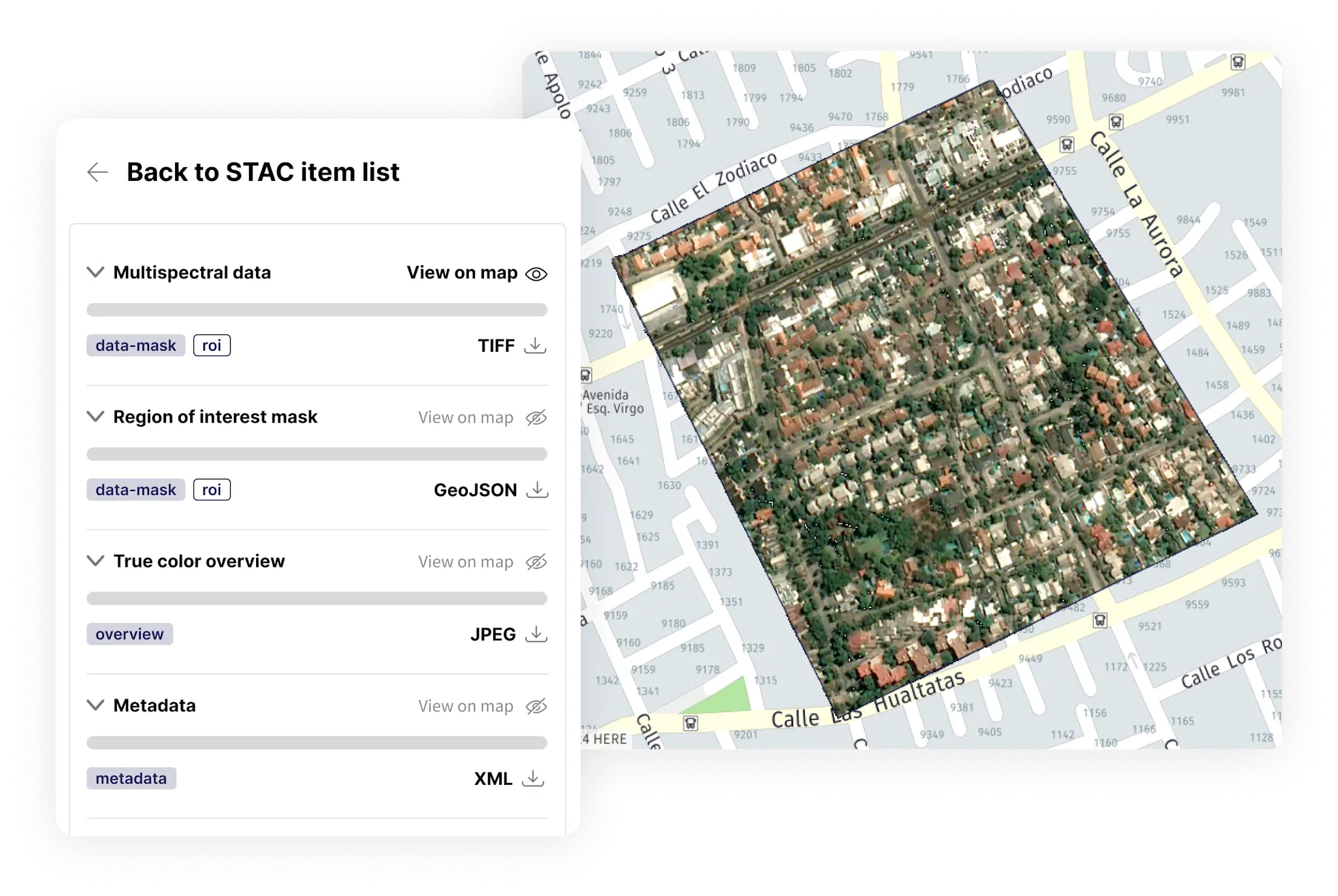UP42 Storage: Console – Map Display Module
Enable geospatial asset visualization beyond the standard table view, allowing users to identify, search, and review assets more intuitively.
Why Build It?
Key Goals:
Display large volumes of geospatial assets on an interactive map.
Support search/filtering by Product, Order, AOI, and metadata.
Highlight non-STAC-compliant assets (currently hidden in the table).
Provide basic polygon info (Product, Order, etc.).
Explore AOI drawing for Catalog/Tasking queries.
Enable temporal comparison of overlapping footprints.
Future Considerations:
Integration of CNAM quick looks & previews.
Solution
Approach: Pure design exploration (no implementation) | Research: 5 user interviews (~1 hour each)
1. User Research & Insights
Biggest Pain Point: Users struggled with spatial context—needed to see assets on a map rather than just a table.
No Industry Benchmark: Competitors lacked similar functionality, requiring close user collaboration during design.
Technical Constraints:
Dependent on STAC/Asset Service APIs.
Upgraded from default maps to Mapbox for better performance/UX.
2. Design Process
Prototyping (Figma):
Interactive Map Layer: Visualize assets with clustering for high-density areas.
Filter Panel: Search by Product, Order, AOI, or custom metadata.
Non-STAC Alerts: Clearly tag non-compliant assets.
AOI Tools: Draw polygons to generate Catalog/Tasking filters.
Temporal Comparison: Side-by-side time-slider for overlapping footprints.
Validation:
Tested with the same 5 users—map view reduced cognitive load for spatial tasks.
3. Technical Considerations
Mapbox Integration: Replaced the base map for smoother rendering and custom styling.
API Alignment: Ensured designs accommodated STAC metadata and Asset Service limits.
Impact & Future Steps
User-Centric Workflow: Geospatial navigation became faster and more intuitive.
Foundation for Expansion: Laid groundwork for New imagery previews and advanced filtering.
Key Takeaways:
"No existing solution" ≠ "No user need"—deep research uncovered unaddressed pain points.
Constraint-Driven Innovation: Mapbox was a strategic upgrade within API dependencies.
